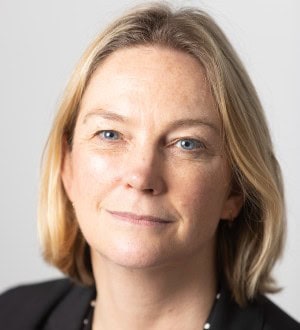Africa is the world’s fastest-growing region, with a population of over one billion people, around 60% of whom are under the age of 25. By 2050, there will be close to 2.5 billion people on the continent, accounting for more than a quarter of the world’s population.
This “youth dividend” presents a significant opportunity. However, it is also likely to place further pressure on existing socio-economic structures, which must grow with demand in a way that is sustainable and equitable if the huge potential of Africa’s young people is to be realised.
How can tertiary education providers – universities, colleges, and others – remain relevant and deliver knowledge, skills and qualifications that meet societal needs and best prepare young people for the future, in a world where labour market requirements are undergoing profound changes? How can research and innovation help address evolving needs? What is hindering institutional and system alignment to the changing landscape and what factors could help accelerate innovation and positive change?
These are just some of the topics that we will be discussing this week in Abuja, Nigeria at the British Council’s regional Going Global conference. Since its inception in 2004, Going Global has served as a strategic forum for leaders in international education to share knowledge, build international networks and shape the future of higher education. Our 2023 global conference centred its discussions on establishing sustainable, scalable, and equitable partnerships in tertiary education. The 2024 conference aims to continue this theme but through a regional lens, looking at how international education partnerships can address Africa’s needs most effectively.
Tertiary education has a pivotal role to play in realising the potential of Africa’s demographic dividend. Its providers must develop capacity to create and curate new research, to nurture knowledgeable and skilled citizens capable of contributing to their nations’ development, and to connect countries to each other and to the wider world.
There is significant underfunding at national level across the continent, including for research, which for higher education stands at an average of 0.38% of GDP in Africa compared to 2.25% in Europe and North America. Africa needs to develop its own research base to support the creation and utilisation of relevant knowledge and innovation.
International research collaborations could support African advancements in science to tackle shared global problems and help navigate social and geopolitical challenges. Tertiary education also remains out of reach for many of Africa’s poorest and most marginalised: women in rural areas, people living with disabilities and forcibly displaced persons. To address such challenges, the sector needs to expand sustainably and at pace while developing policy and practical solutions for improved access, equity and non-discrimination, financing, and governance.
Tertiary education has a pivotal role to play in realising the potential of Africa’s demographic dividend
This will require a collective effort and support from governments, industry, and international partners. International partnerships are often seen as a major factor for growth, for building capacity and increasing quality and relevance within tertiary education systems, but the opportunities and challenges faced by African tertiary education institutions when working with partners overseas need to be understood. We also need to develop a range of financially sustainable models for collaboration that explore how transnational education be offered at scale to deliver mutual benefits.
While international student and faculty mobility can play a part in strengthening Africa’s tertiary education systems, it also brings with it the challenge of brain drain. We need mobility offers that enable students and faculty to maximise their time overseas and bring new knowledge, skills and connections back to their home countries. This requires host countries to be responsible in designing scholarships and researcher exchanges.
All this and much more will be discussed throughout the week in Abuja. We’re grateful to the Federal Government of Nigeria, the Ministry of Education, and the National Universities Commission, all of whom the British Council in Nigeria has long-standing positive relationships, and we expect participation from across continent including Ghana, Kenya, Nigeria, South Africa, Ethiopia, Malawi, Mauritius, Uganda, Botswana, Mozambique, Zimbabwe, with many UK sector colleagues also in attendance.
Going Global is about presenting the UK as an international education partner for achieving national and regional goals across the continent, for increasing collaborations between Africa and the UK and for fostering sustainable partnerships. The purpose of all this is, ultimately, to improve outcomes and provide opportunities for young people from across the continent – and to build positive relationships with the UK.
About the author: Maddalaine Ansell is director education at the British Council.
The post Supporting sustainable tertiary education in Africa appeared first on The PIE News.


